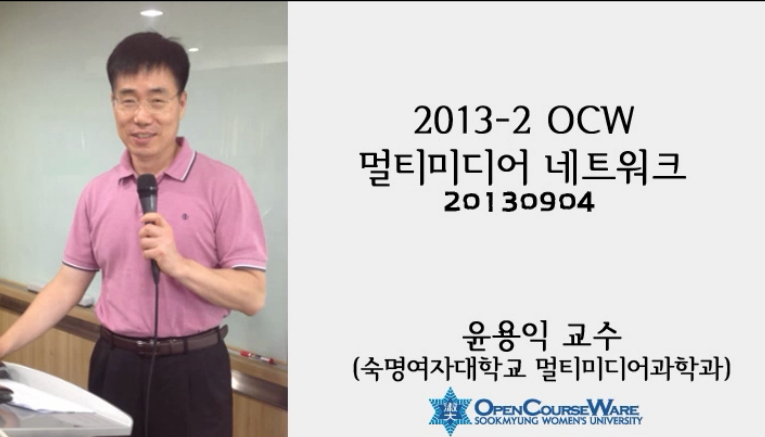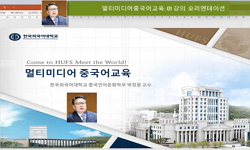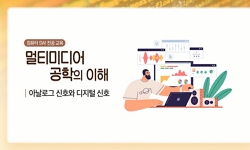The purpose of this study was to develop an early childhood health education program utilizing multimedia as the means to promote health literacy which would be divided into health perception and behavior among 5 year-old children. The educational con...
http://chineseinput.net/에서 pinyin(병음)방식으로 중국어를 변환할 수 있습니다.
변환된 중국어를 복사하여 사용하시면 됩니다.
- 中文 을 입력하시려면 zhongwen을 입력하시고 space를누르시면됩니다.
- 北京 을 입력하시려면 beijing을 입력하시고 space를 누르시면 됩니다.

멀티미디어를 활용한 유아건강교육 프로그램이 유아의 건강소양에 미치는 영향 = Investigating the Effects of a Multimedia based Health Education Program on Young Children's Healthy Literacy
한글로보기https://www.riss.kr/link?id=A104857679
- 저자
- 발행기관
- 학술지명
- 권호사항
-
발행연도
2011
-
작성언어
Korean
- 주제어
-
등재정보
KCI등재
-
자료형태
학술저널
-
수록면
599-624(26쪽)
-
KCI 피인용횟수
11
- 제공처
-
0
상세조회 -
0
다운로드
부가정보
다국어 초록 (Multilingual Abstract)
The purpose of this study was to develop an early childhood health education program utilizing multimedia as the means to promote health literacy which would be divided into health perception and behavior among 5 year-old children. The educational contents of this program consisted of four sub-factors of health: physical health, nutrition, mental health, and safety. This study adopted the Keller's model which consisted of four steps: attention, relevance, confidence, satisfaction(ARCS). This health education program was applied to 56 five-year-old children (the experiment group, 28; the comparison group, 28) with 26 sessions for 16 weeks from September 30 to December 22, 2010 in S kindergarten located in Seoul, Korea. First, it was found that the children's 'total' health perception score in post-test was higher at a statistically significant level in the experimental group whose health education program was utilizing multimedia methods. Specifically, the sub-factors of 'nutrition' and 'mental health' were higher in the multimedia using experimental health education group at the level of statistical significance(overall health perception: t=4.01, p<.001, nutritional awareness: t= 5.56, p<.001, mental health awareness: t=3.06, p<.001). Second, the total score for health-promoting behavior in the experimental group was higher than the comparison group’s total score at a statistically significant level. In particular, 'physical health', 'nutrition' health promoting behaviors in the experimental group were higher at a statistically significant level than the comparison group(overall health-promoting behaviors: t=2.92, p<.01, physical health-promoting behaviors: t=2.84, p<.01, nutrition-promoting behaviors: t=3.36, p<.001). These results indicate that multimedia based health education programs are effective in improving children's health literacy.
참고문헌 (Reference)
1 김성희, "학령기 아동의 건강증진 행위 예측 모형" 이화여자대학교 대학원 2007
2 안혜영, "학령기 아동을 위한 구강건강프로그램 적용" 아동간호학회 16 (16): 49-55, 2010
3 김명, "통합적 접근을 통한 건강과학의 이해" 이화여 대학교 출판부 2008
4 교육과학기술부, "종일제 특성화 체육(튼튼체육)프로그램 개요"
5 이부연, "전도식기 아동의 인성발달을 위한 생태미술교육프로그램 연구 -점토미술 교육을 중심으로" 한국예술교육학회 7 (7): 173-190, 2009
6 김지숙, "유치원에서의 유아의 식사행동과 교사의 급식지도" 이화여자대학교 대학원 2003
7 이고훈, "유아의 신체활동이 유아 자아개념 및 친사회적 행동발달에 미치는 영향" 이화여자대학교 교육대학원 2005
8 김준권, "유아의 교수학습과정에서 멀티미디어 활용에 대한 고찰" 21 : 102-130, 2007
9 김일옥, "유아를 위한 치아건강관리 교육 프로그램의 개발에 관한 연구" 한국영유아보육학회 31 : 153-178, 2002
10 김일옥, "유아를 위한 영양교육 프로그램의 개발 및 적용 - 4세 아동을 중심으로" 한국영유아보육학회 61 (61): 45-62, 2010
1 김성희, "학령기 아동의 건강증진 행위 예측 모형" 이화여자대학교 대학원 2007
2 안혜영, "학령기 아동을 위한 구강건강프로그램 적용" 아동간호학회 16 (16): 49-55, 2010
3 김명, "통합적 접근을 통한 건강과학의 이해" 이화여 대학교 출판부 2008
4 교육과학기술부, "종일제 특성화 체육(튼튼체육)프로그램 개요"
5 이부연, "전도식기 아동의 인성발달을 위한 생태미술교육프로그램 연구 -점토미술 교육을 중심으로" 한국예술교육학회 7 (7): 173-190, 2009
6 김지숙, "유치원에서의 유아의 식사행동과 교사의 급식지도" 이화여자대학교 대학원 2003
7 이고훈, "유아의 신체활동이 유아 자아개념 및 친사회적 행동발달에 미치는 영향" 이화여자대학교 교육대학원 2005
8 김준권, "유아의 교수학습과정에서 멀티미디어 활용에 대한 고찰" 21 : 102-130, 2007
9 김일옥, "유아를 위한 치아건강관리 교육 프로그램의 개발에 관한 연구" 한국영유아보육학회 31 : 153-178, 2002
10 김일옥, "유아를 위한 영양교육 프로그램의 개발 및 적용 - 4세 아동을 중심으로" 한국영유아보육학회 61 (61): 45-62, 2010
11 이현옥, "유아대상 건강영양교육자료 내용 및 효과에 대한 연구" 한국식품영양학회 20 (20): 202-208, 2007
12 한국유아교육학회, "유아교육학의 이해" 양서원 2005
13 김일옥, "유아교육기관의 건강교육 실태에 관한 연구" 4 (4): 255-264, 1998
14 최민수, "유아교육기관에서의 명상활동이 유아의 스트레스에 미치는 효과" 미래유아교육학회 12 (12): 313-337, 2005
15 허미애, "유아교사의 인터넷 교육 컨텐츠에 대한 인식과 활용 실태" 성균관대학교 대학원 2004
16 조경자, "유아건강교육(3판)" 학지사 2010
17 노은호, "유아 편식지도를 위한 통합적 요리프로그램 개발" 7 (7): 81-93, 2007
18 곽은복, "유아 안전교육 프로그램의 구성 및 효과에 관한 연구" 중앙대학교 대학원 2000
19 정미라, "영유아를 위한 건강 및 영양교육" 양서원 2007
20 이순형, "영․유아 건강교육" 학지사 2009
21 김진희, "안전교육을 위한 교수방법 유형이 유아의 안전 문제해결 사고능력과 안전행동에 미치는 영향" 인천대학교 교육대학원 2004
22 오경숙, "실외놀이 유무와 유아 스트레스 행동" 10 (10): 81-98, 2009
23 송인숙, "소집단 신체활동이 유아의 사회적 능력에 미치는 영향" 전남대학교 대학원 2004
24 김미숙, "멀티미디어를 이용한 보건교육 프로그램이 초등학생의 건강인지도와 수정도에 미치는 영향" 연세대학교 대학원 2006
25 이인영, "두레정신에 기초한 유아교육프로그램 개발" 한국유아교육학회 28 (28): 95-123, 2008
26 김영옥, "농어촌 보육시설의 안전점검 척도 개발에 관한 연구" 15 : 133-170, 1998
27 이선경, "교육과정 생활주제 중심의 신체활동이 유아의 자아존중감 및 사회성 증진에 미치는 효과" 한국체육교육학회 16 (16): 47-58, 2011
28 최미자, "경주지역 유치원 아동들의 식습관과 영야소 섭취상태" 대한지역사회영양학회 11 (11): 3-13, 2006
29 통계청, "경제활동인구조사"
30 Sheffield, E. G., "You must remember this: Effects of video and photograph reminders on 18-month-olds' event memory" 7 (7): 73-93, 2006
31 Myant, K., "What do children learn about biology from factual information?: A comparison of interventions to improve understanding of contagious illnesses" 78 : 223-244, 2008
32 Bartholomew, L. K., "Watch, discover, think, and act: A model for patient education program development" 39 (39): 253-268, 2000
33 Gould, S. M., "Using interactive multimedia nutrition education to reach low-income persons: An effectiveness evaluation" 32 (32): 204-213, 2000
34 Becker, M. H., "The health belief model and prediction of dietary compliance: A field experiment" 18 (18): 348-366, 1977
35 Peters, R. D., "The better beginnings, better futures project: A universal, comprehensive, community-based prevention approach for primary school children and their families" 32 (32): 215-227, 2003
36 Munguba, M., "The application of an occupational therapy nutrition education program for children who are obese" 15 (15): 56-70, 2008
37 Bruga, J., "The application and impact of computer-generated personalized nutrition education: A review of the literature" 36 (36): 145-156, 1999
38 Schweinhart, L., "Significant benefits: The high/scope perry preschool study through age 27" The High/Scope Press 1993
39 Robertson,C, "Safety, nutrition, and health in early education" Wadsworth Publishing 2009
40 te Velde, A. F., "Road-cross behavior in young children. In Development of movement coordination in children: Applications in the field of ergonomics, health sciences and sport" Routledge 2003
41 Bauer, P., "Remembering what happened next: Very young children's recall of event sequences. In Knowing and remembering in young children" Cambridge University Press 9-29, 1990
42 Hochbaum,G.M, "Public participation in medical screening programs: A sociopsychological study(Public Health Service, PHC Publication 572)" US Government Printing Office 1958
43 Greenberg, M., "Promoting emotional competence in school-aged children: The effects of the PATHS curriculum" 7 : 117-136, 1995
44 Baranowski, T., "Playing for real video games and stories for health-related behavior change" 34 (34): 74-82, 2008
45 World Health Organization(WHO), "Ottawa charter for health promotion" World Health Organization 1986
46 Joint Committee on National Health Education Standards(NHES), "National health education standards: Achieving excellence(2nd ed)" American Cancer Society 2007
47 Lieberman,D.A, "Management of chronic pediatric diseases with interactive health games: Theory and research findings" 24 (24): 26-38, 2001
48 Silk, K., "Increasing nutrition literacy: Testing the effectiveness of print, web-site, and game modalities" 40 (40): 3-10, 2008
49 Keller, J. M, "How to integrate learner motivation planning into lesson planning: The ARCS model approach"
50 Marotz,L, "Health, safety, and nutrition for the young child(9th ed)" Wadsworth Publishing 2009
51 Barton, A. C., "From global substantiality to inclusive education: Understanding urban children’s ideas about the food system" 27 (27): 1163-1186, 2005
52 Buller, D. B., "Evaluation of the sunny days, healthy ways sun safety curriculum for children in kindergarten through fifth grade" 23 (23): 321-329, 2006
53 Warren, J. M., "Evaluation of a pilot school programme aimed at the prevention of obesity in children" 18 (18): 287-296, 2003
54 Leventhal, H., "Epidemic impact on the general population in two cities. In The impact of Asian influenza on community life: A study in five cities(U. S. Dept. of Health, Education and Welfare, U. S. Public Health Service Publication No. 766)" U.S. Government Printing Office 1960
55 Battistich, V., "Effects of an elementary school program to enhance prosocial behavior on children's cognitive-social problem-solving skills and strategies" 10 : 147-169, 1989
56 Zhai,F, "Effects of Head Start on the outcomes of participants" Columbia University 2008
57 Mishara, B., "Effectiveness of a mental health promotion program to improve coping skills in young children: Zippy’s Friends" 21 : 110-123, 2006
58 Chuang, T. Y., "Effect of computer-based video games on children: An experimental study" 12 (12): 1-10, 2009
59 Springer, K., "Early beliefs about the cause of illness: Evidence against immanent justice" 7 : 429-443, 1992
60 Birch,L, "Development of food acceptance patterns in the first years of life" 57 : 617-624, 1998
61 Peterson, L., "Develop- mental patterns of expected consequences for simulated bicycle injury events" 13 : 218-223, 1994
62 Siegal, M., "Contamination sensitivity in young children" 26 : 455-458, 1990
63 Deschesnes, M., "Comprehensive approaches to school health promotion: How to achieve broader implementation" 18 (18): 387-396, 2003
64 Tabibi, Z., "Choosing a safe place to cross the road: The relationship between attention and identification of safe and dangerous road-crossing sites" 29 (29): 237-244, 2003
65 Bibace, R., "Children’s conceptions of illness. In New directions for child development: Children’s conceptions of health, illness and bodily functions" Jossey-Bass 34-42, 1981
66 Padgett, L. S., "Case study: Using a virtual reality computer game to teach fire safety skills to children diagnosed with fetal Alcohol Syndrome" 31 (31): 65-70, 2008
67 Christodoulos, A. D., "Attitudes towards exercise and physical activity behaviours in Greek schoolchildren after a year long health education intervention" 40 : 367-371, 2006
68 Luria, J. W., "An evaluation of a safety education program for kindergarten and elementary school children" 154 (154): 227-231, 2000
69 Perry, C., "A randomized school trial of environmental strategies to encourage fruit and vegetable consumption among children" 31 (31): 65-76, 2004
70 Bechberger, A., "A pilot study evaluating the effectiveness of a computer-based gaming strategy in educating school- aged children about vehicle safety" 2008
71 Secker-Walker, R. H., "A mass media programme to prevent smoking among adolescents: Costs and cost effectiveness" 6 (6): 207-212, 1997
72 Kolbe,L.J, "A framework for school health programs in 21st century" 75 (75): 226-228, 2005
73 보건복지부, "2010 보육사업안내" 보건복지부 2011
74 한국교육개발원, "2010 교육통계연보" 한국교육개발원 2011
동일학술지(권/호) 다른 논문
-
다문화 교육의 혼돈과 이해의 과정: 안산 ‘원곡동’ 현장 연구
- 한국영유아교원교육학회
- 이부미
- 2011
- KCI등재
-
- 한국영유아교원교육학회
- 이정욱
- 2011
- KCI등재
-
- 한국영유아교원교육학회
- 김정희
- 2011
- KCI등재
-
- 한국영유아교원교육학회
- 백지혜
- 2011
- KCI등재
분석정보
인용정보 인용지수 설명보기
학술지 이력
| 연월일 | 이력구분 | 이력상세 | 등재구분 |
|---|---|---|---|
| 2027 | 평가예정 | 재인증평가 신청대상 (재인증) | |
| 2021-01-01 | 평가 | 등재학술지 유지 (재인증) |  |
| 2018-01-01 | 평가 | 등재학술지 유지 (등재유지) |  |
| 2015-01-01 | 평가 | 등재학술지 유지 (등재유지) |  |
| 2011-01-01 | 평가 | 등재학술지 유지 (등재유지) |  |
| 2009-01-01 | 평가 | 등재학술지 유지 (등재유지) |  |
| 2006-01-01 | 평가 | 등재학술지 선정 (등재후보2차) |  |
| 2005-03-21 | 학회명변경 | 한글명 : 중앙유아교육학회 -> 한국영유아교원교육학회영문명 : Chung-Ang Society Of Education For Young Children -> The Korean Society for Early Childhood Teacher Education |  |
| 2005-01-01 | 평가 | 등재후보 1차 PASS (등재후보1차) |  |
| 2004-01-01 | 평가 | 등재후보 1차 FAIL (등재후보1차) |  |
| 2002-07-01 | 평가 | 등재후보학술지 선정 (신규평가) |  |
학술지 인용정보
| 기준연도 | WOS-KCI 통합IF(2년) | KCIF(2년) | KCIF(3년) |
|---|---|---|---|
| 2016 | 2.42 | 2.42 | 2.56 |
| KCIF(4년) | KCIF(5년) | 중심성지수(3년) | 즉시성지수 |
| 2.57 | 2.56 | 2.707 | 0.51 |




 DBpia
DBpia






